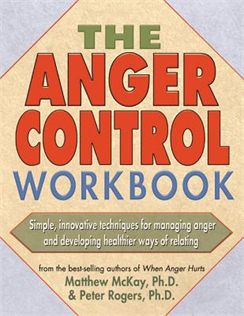Anger Management
Anger Control
Anger is a very common, normal, and, at times, reasonable response to events in our life. Anger itself is not necessarily a bad thing, but the toll it takes on ourselves and others can be quite harmful, especially when we do not express our emotions in healthy ways. Several health and mental health concerns are related to chronic unhealthy expressions of anger, including hypertension, cardiovascular problems, headaches, stomachaches, and relationship problems. Thus, anger can be particularly pernicious and destructive.What to Know about Anger
- Anger is normal, but can be damaging.
- Anger can build to the point of "blowing up" and, if not addressed in healthier ways, can be incredibly hard to control.
- Many people find the initial release of angry outbursts to be relieving, but this is usually short-lived and leads to guilt, increased anger, and a likelihood that unhealthy behaviors will be repeated.
- Anger is learned and children are especially sensitive to take on the negative emotional expressions of caregivers.
- Anger often masks chronic pain or sadness, especially in men who may find it unacceptable to express depressive symptoms in more "vulnerable ways" such as by crying or talking about sadness.
- Unhealthy anger reactions can be changed over time.
Common Strategies to Manage Anger
First, recognize when you are becoming angry before it builds. If you can, remove yourself from environments that trigger intense anger. It is important to recognize that you anger is a distress signal, not a weapon for attack. Try some of the symptom specific ways to control anger below. Find the ones that work best for you, add to them, and make then your own.
Anger in Your Body
Notice what is going on in your body: blood pressure rising, feeling as though your internal temperature is increasing, tension all over, racing thoughts, a need to do something about it (this is often what gets us into trouble). Anger, like anxiety, provides our body with signals to prepare for something and so, according to our design, it builds and builds. Because anger builds up tension in our bodies, we can counter it by doing the opposite - relaxing (see this website's "Stress Management" section for more information on relaxation skills)
- Take a break from the anger
- Go for a walk or exercise
- Take slow, deep breaths - count backwards slowly from 10
- Think of a relaxing image and concentrate on this, imagine waves of calm
- Practice progressive muscle relaxation - tense individual or whole muscle groups for a few seconds and notice what your muscles feel like immediately after, when not tensed
- Practice meditation, yoga, or mindfulness
Anger in Your Mind
Notice your thoughts: upset; thinking "it's not right," "unfair," or "unacceptable;" a desire to "prove a point" or demonstrate how much something is hurting you. Learn about the patterns your anger takes - it may help to write these down. You may include ratings of the intensity of the anger (0-10 scale). The more you understand about your anger, the better equipped you'll be to devise a plan to help yourself manage it.
- Keep a journal of your "hot thoughts" that trigger anger. Plan ways you'll allow these types of thoughts/impulses to "bounce off" of you.
- Consider whether your underlying thoughts or beliefs are contributing to the anger. Are these realistic? Are you making mountains out of molehills? Recall that anger isn't likely to be logical, although you can decide that your behaviors will be. Is there a theme? (e.g., "I shouldn't have to feel this way!" "No one treats me like that!" "I'll make them see it my way!"). Often, our thoughts can function like throwing gasoline on the lit embers of our building anger.
- Write out a plan of how you'd like to handle anger situations - this can include ideas of how you would have a "do-over" from past situations.
Assistance for Anger Control
Recognize that angry reactions are learned over time and hard habits to break. Give yourself time to re-learn how you'd prefer to respond in angry situations. Do not punish yourself for an occasional flare-up. Recognize when managing anger may be too difficult to do on your own and consider seeking professional assistance, such as the Counseling Center.
The American Psychological Association provides a detailed web brochure on how to control your anger.
 A very helpful workbook on managing anger is The Anger Control Workbook: Simple, Innovative Techniques for Managing Anger and Developing Healthier Ways of Relating by Matthew McKay, Ph.D. & Peter Rogers, Ph.D. (2000).
A very helpful workbook on managing anger is The Anger Control Workbook: Simple, Innovative Techniques for Managing Anger and Developing Healthier Ways of Relating by Matthew McKay, Ph.D. & Peter Rogers, Ph.D. (2000).
